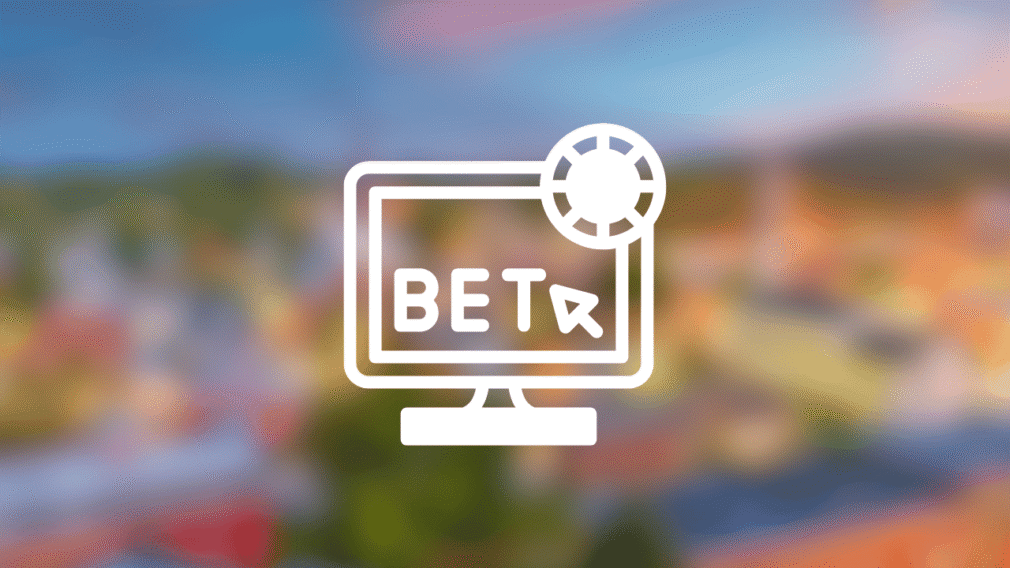Is Sports Betting Legal in Vermont? Everything You Need to Know
Sports betting is legal in Vermont, operating exclusively through online platforms since its launch on January 11, 2024. Regulated by the Vermont Department of Liquor and Lottery (DLL) under Act 63 (H.127), signed by Governor Phil Scott on June 14, 2023, Vermont became the 38th U.S. jurisdiction to legalize sports betting.

Three operators: DraftKings, FanDuel, and Fanatics Sportsbook, offer mobile betting to users aged 21 or older, verified by geolocation technology to ensure bets are placed within state borders.
The market’s online-only model maximizes accessibility, particularly for rural residents, but lacks the social atmosphere of retail sportsbooks. Betting on in-state college teams like the University of Vermont Catamounts is restricted, except during national tournaments like March Madness.
With a 31–33% revenue-sharing model, the state expects $4.6–$10.6 million in fiscal year 2025 taxes, supporting education, infrastructure, and responsible gambling programs, including $250,000 annually for problem gambling initiatives.
However, House Bill 133 (H.133), introduced in February 2025, proposes repealing sports betting, creating uncertainty. Vermont’s sports culture, tied to New England teams like the New England Patriots and Boston Celtics, fuels betting enthusiasm.
History of Legalizing Sports Betting in Vermont
The U.S. Supreme Court’s 2018 Murphy v. NCAA decision, overturning the Professional and Amateur Sports Protection Act (PASPA), enabled states to legalize sports betting, ending a 25-year federal ban (1992–2018) that limited sports wagering to Nevada, Delaware, Montana, and Oregon. Vermont, lacking a casino infrastructure, initially lagged behind neighbors like New Hampshire (legalized 2019) and New York (online in 2022).
Efforts to legalize sports betting began in 2019 with H.484, which stalled in committee. In 2020, S.213 passed the Senate but failed in the House. A 2020 study commission, authorized by S.59, recommended legalization under DLL oversight, citing revenue potential.
In January 2023, H.127 was introduced, passing both chambers by May 9, 2023, and signed into Act 63 on June 14, 2023. The market launched on January 11, 2024, with DraftKings, FanDuel, and Fanatics selected from five applicants (BetMGM and ESPN Bet were rejected).

Vermont’s online-only model, like Tennessee and Wyoming, contrasts with South Dakota’s retail-only market in Deadwood. The state aims to capture revenue lost to offshore platforms and neighboring states while prioritizing consumer protection.
Regulations Governing Vermont’s Sports Betting Market
The Vermont Department of Liquor and Lottery (DLL) regulates sports betting, overseeing licensing, compliance, and consumer safety. Key regulations include:
Age and Location: Bettors must be 21 or older, verified via KYC processes (name, address, last four SSN digits). Geofencing ensures bets are placed within Vermont, with violations risking $1,000 fines or 90 days in jail.
Licensing and Taxation: Up to six operators are allowed; three are currently licensed (DraftKings, FanDuel, Fanatics), paying a $550,000 initial licensing fee and 31–33% of adjusted gross revenue (FanDuel: 33%, DraftKings/Fanatics: 31%), exceeding the mandated 20% minimum. Winnings over $600 face a 24% federal tax and 6% state tax (7.5% for non-residents). Operators pay a 0.25% federal excise tax.
Restricted Markets: Prohibited bets include high school sports, in-state college teams (e.g., University of Vermont Catamounts, except in national tournaments), college player prop bets, politics, entertainment awards(e.g., Oscars), judged sports (except surfing), and LIV Golf Tour. These protect amateur athletes and event integrity.
Legal Framework: The 1961 Wire Act and 2006 UIGEA target illegal operators, with state penalties for unlicensed gambling up to 7 years in prison and $2,000 fines. The DLL enforces audited odds, SSL/TLS encryption, multi-factor authentication, and AML compliance through biennial audits. Credit cards are banned for deposits to prevent debt.
The online-only model simplifies regulation but limits social betting experiences, driving some to offshore platforms.
Where to Bet in Vermont: Online Platforms and DFS
Vermont’s sports betting is exclusively online, with no retail sportsbooks or casinos due to the state’s lack of gambling infrastructure. Licensed platforms include:
-
DraftKings: Offers an intuitive interface, live betting, player prop bets, and stats hubs. Features include “Bet $5, Get $150 Instantly” promotions and coverage of 24 sports, including niche options like Jai Alai.
-
FanDuel: Known for competitive odds, live betting, and promotions like “Bet $5, Win $150”. Provides moneyline, spreads, and Same Game Parlays, branded as America’s top online betting platform.
-
Fanatics Sportsbook: Features the FanCash rewards system, returning a percentage of wagers as credits, and native iOS/Android apps for fast registration and withdrawals. Offers “No Sweat Bets” up to $1,000.
Bettors must be in Vermont, verified by geolocation technology, and use debit cards or other non-credit payment methods. The DLL rejected BetMGM and ESPN Bet, but up to three more operators could be licensed. Daily Fantasy Sports (DFS) platforms like DraftKings, FanDuel, PrizePicks, Underdog Fantasy, and OwnersBox are legal, raised to age 21 under H.127.

DFS, classified as skill-based, allows player performance bets, differing from sports betting’s outcome-based focus. PrizePicks’ “Pick ’Em” game, allowing bets on player stats, operates despite college prop bet bans, highlighting a regulatory gray area.
Recent Developments in Vermont Sports Betting
- [February 17, 2025]: Vermont Lawmakers Introduce Bill to Ban State Lottery and Online Sports Betting
- [January 21, 2025]: Vermont Sets Sports Betting Handle Record in December but Faces Revenue Drop
- [December 17, 2024]: Vermont Sports Betting Sees Strong November Growth with $18.4 Million Handle
- [September 18, 2024]: Vermont Sees 25.6% Drop in Sports Betting Revenue for August
- [August 20, 2024]: Vermont’s Sports Betting Handle Drops Below $10 Million in July
Betting Options: What Can You Wager On?
Vermont’s sportsbooks offer diverse betting options, catering to various preferences:
Bet Types:
- Moneyline: Bet on the outright winner.
- Point Spreads: Wager on victory margins.
- Totals (Over/Under): Predict combined scores.
- Parlays: Combine multiple bets for higher payouts.
- Teasers: Adjust spreads for better odds.
- Futures: Bet on long-term outcomes (e.g., Super Bowl winners).
- Prop Bets: Wager on specific game events (e.g., first touchdown scorer).
- Live Betting: Real-time bets with dynamic odds.
Popular Sports:
- Professional Leagues: High demand for NFL (New England Patriots), NBA (Boston Celtics), MLB (Boston Red Sox), NHL (Boston Bruins), MMA, boxing, golf, NASCAR, tennis, cricket, and esports (with DLL approval).
- College Sports: Out-of-state teams (e.g., Duke) are popular, but in-state teams like the University of Vermont Catamounts are restricted except in national tournaments. College player prop bets are banned (clarified March 2024).
Restricted Markets: Prohibited bets include high school sports, in-state college teams (outside tournaments), college player props, politics, entertainment awards, judged sports (except surfing), LIV Golf Tour, and scripted events. Horse racing is allowed online only, as Vermont lacks racetracks.
Cultural Influence: Vermont’s lack of professional teams ties betting to New England fandom, with the Patriots, Celtics, Red Sox, and Bruins driving engagement. The Catamounts’ NCAA tournament appearances spark interest, despite betting restrictions. The online-only model maximizes rural access but lacks retail social hubs.
Economic Contributions of Sports Betting in Vermont
Sports betting is a growing economic driver in Vermont. In 2024, the market generated a $198.8 million handle, with $21.9 million in gross revenue and $6.3 million in taxes, slightly below projections due to a favorable NFL season for bettors. The Vermont Legislative Joint Fiscal Office estimates $4.6–$10.6 million in FY 2025 taxes at 31–33% revenue shares, deposited into the Sports Wagering Enterprise Fund.
These funds support education, infrastructure, public safety, and problem gambling programs ($250,000 annually, matched by the Vermont Lottery in 2024). Initial DLL administrative costs were $500,000.
The industry supports jobs in technology, customer service, and marketing, though exact figures are unavailable. Vermont’s $42.22 GGR per capita in 2024 outperforms Delaware ($13.97), Rhode Island ($34.65), and Maine($39.50). Compared to New York ($2.06 billion GGR, $22.6 billion handle in 2024) and South Dakota ($775,000 GGR), Vermont’s online-only model is efficient but smaller.

Tourism benefits indirectly, with 53% of accounts opened by out-of-state visitors in the first month, averaging $34.33 per bet versus residents’ $19.05, boosting spending in Stowe and Burlington.
Offshore Betting Risks: Why Choose Legal Platforms?
Some Vermonters use offshore platforms like Bovada, BetOnline, or BetUS for broader markets (e.g., politics, college player props), credit betting, tax avoidance, or bypassing geolocation. These are illegal and risky:
-
Legal Risks: Violating geolocation rules incurs $1,000 fines or 90 days in jail. Unlicensed gambling faces up to 7 years in prison and $2,000 fines. The 1961 Wire Act and 2006 UIGEA may lead to account seizures.
-
Financial Risks: Offshore sites risk delayed/withheld payouts, account closures, or site disappearances, with no legal recourse. Credit betting can lead to debt.
-
Data Security Risks: Lacking U.S. data protections, they increase fraud and identity theft risks, especially with cryptocurrencies.
Legal sportsbooks offer:
-
Audited Odds: Certified for fairness.
-
Secure Transactions: SSL/TLS encryption and segregated funds.
-
Responsible Gambling Tools: Self-exclusion, deposit/time limits, and AML compliance.
Responsible Gambling
Vermont prioritizes responsible gambling through robust measures:
-
Self-Exclusion: Statewide program with 1-, 3-, 5-year, or lifetime bans, registered via DLL. Forfeited winnings fund problem gambling programs.
-
Deposit/Spending Limits: Daily, weekly, or monthly caps.
-
Time/Wager Limits: Restrict session durations or bet amounts, with minimum 72-hour pauses.
-
Cool-Off Periods: Temporary account suspensions.
-
Cashless Systems: Track activity and enforce limits. Credit cards are banned.
-
Staff Training: Operators train employees to identify problem gambling, assist patrons, and provide resource information.
Resources include:
-
1-800-GAMBLER: 24/7 support via phone, text (800GAM), or chat (1800gamblerchat.org).
-
Vermont Council on Problem Gambling: Counseling and support groups.
-
VTGamblingHelp.org: Launched July 2024, offers helpline, chat, and self-exclusion.
-
Howard Center: Local support services.
-
Gamblers Anonymous/Gam-Anon: Virtual peer support.
-
Birches Health: Telehealth treatment.
-
Self-Assessment Tools: Online habit evaluation.
Vermont allocates $500,000 annually ($250,000 from betting taxes, $250,000 from the lottery) for problem gambling, training mental health counselors. Tips include budgeting 1–5% of disposable income, taking 30–60-minute breaks, avoiding loss-chasing, and balancing betting with activities like skiing in Stowe or attending Catamounts games.
Future Outlook: Expansion or Repeal?
Vermont’s sports betting market faces a critical juncture. The 2026 expiration of operator contracts could allow new licenses for operators like BetMGM or ESPN Bet, increasing competition.
However, H.133 (February 2025), proposed by Representatives Stevens, Headrick, and Mrowicki, seeks to repeal sports betting and the state lottery, citing concerns over regressive taxation on low-income bettors.
Its passage is uncertain given the $6.3 million in 2024 tax revenue. H.857(2024) proposed stricter advertising rules, reflecting ongoing oversight.
Technological advancements could enhance the market:
-
AI/Machine Learning: Personalize bets and optimize live odds.
-
Blockchain/Web3: Ensure transparent, secure transactions.
-
Micro-Betting: Wager on in-game events (e.g., next play).
Restrictions on in-state college teams and college player props will likely persist, following a March 2024 DLL ban to protect athletes. Vermont’s market could grow to $15–18 million annually in taxes with expansion, but the repeal threat looms.
Is sports betting legal in Vermont?
Yes, online via DraftKings, FanDuel, and Fanatics.
Where can I bet?
Online only; no retail sportsbooks exist.
Can I bet on the University of Vermont Catamounts?
Only during national tournaments like March Madness.
What’s the minimum betting age?
21, verified by KYC.
What bets are available?
Moneyline, spreads, parlays, futures, live betting; no high school, politics, or college player props.
Why avoid offshore sites?
They risk fines, payment delays, and data breaches.
Where can I get help for gambling issues?
Call 1-800-GAMBLER or visit VTGamblingHelp.org.
Recommended

